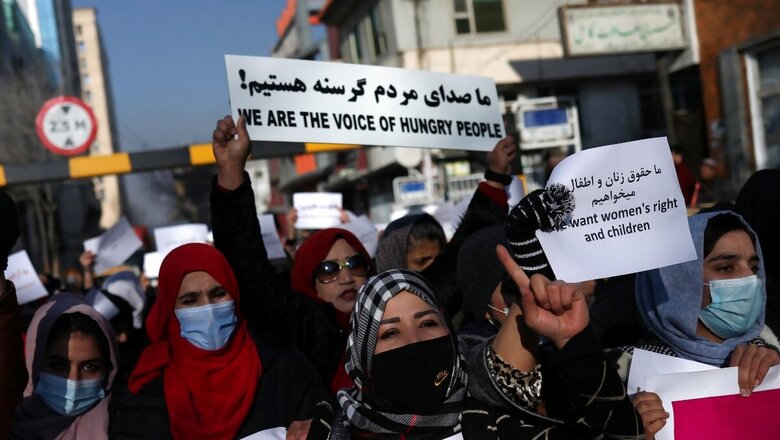
views
The Taliban regime in Afghanistan has reportedly banned female employees of the United Nations from working in the country, potentially putting in jeopardy a $14-billion UN aid to the country. The UN mission expressed “serious concern” after its female staffers were prevented from reporting to work in eastern Nangarhar province. The reported development also exposes the rift within the Taliban regime, with some ministers said to be opposed to the move.
Confirming the development, UN spokesman Stephane Dujarric told reporters: “We will continue to pursue all avenues to ensure that we can reach the most vulnerable people, especially women and girls.” He said UN officials were told through “various conduits” that the ban applied to the whole country. Taliban spokesmen did not issue a statement.
Despite initial promises of a more moderate rule than during its previous stint in power, the Taliban have imposed harsh measures since seizing power in 2021 as US and NATO forces were pulling out of Afghanistan after two decades of war.
Girls are banned from education beyond sixth grade. Women are barred from working, studying, traveling without a male companion, and even going to parks. Women must also cover themselves from head to toe.
Afghan women were also barred from working at national and international non-governmental organisations, disrupting the delivery of humanitarian aid. Women working for the UN were not included in the NGO ban, but the UN raised fears that women working for it could be targeted.
The UN has about 3,900 staff in Afghanistan, approximately 3,300 Afghans and 600 international personnel, he said, including 600 Afghan women and 200 women from other countries.
The UN political mission in Afghanistan, UNAMA, is headed by a woman, Roza Otunbayeva, a former president and foreign minister of the Kyrgyz Republic. She was appointed by the secretary-general in coordination with the UN Security Council. Dujarric said there’s been no Taliban action regarding the UN’s senior leadership.
Taliban restrictions in Afghanistan, especially the bans on education and NGO work, have drawn fierce international condemnation. But the Taliban have shown no signs of backing down, claiming the bans are temporary suspensions in place allegedly because women were not wearing the Islamic headscarf, or hijab, correctly and because gender segregation rules were not being followed.
Funding Cuts?
UN Secretary-General Antonio Guterres condemned the ban enforcement in Nangarhar, posting on Twitter: “If this measure is not reversed, it will inevitably undermine our ability to deliver life-saving aid to the people who need it.”
It was not immediately clear whether foreign embassies in Kabul had received similar instructions on female staff.
A ban on Afghan female UN workers could pose major challenges to continued UN operations in Afghanistan. The founding UN Charter states that no restrictions be placed on the eligibility of men and women to work for the UN.
Aid officials have also flagged the risk that donor countries will reduce funding due to frustration over restrictions on women as other international crises take hold.
The UN has made its single-largest country aid appeal ever, asking for $4.6 billion in 2023 to deliver assistance in Afghanistan. So far it is less than 5% funded.
With agency inputs
Read all the Latest News here




















Comments
0 comment